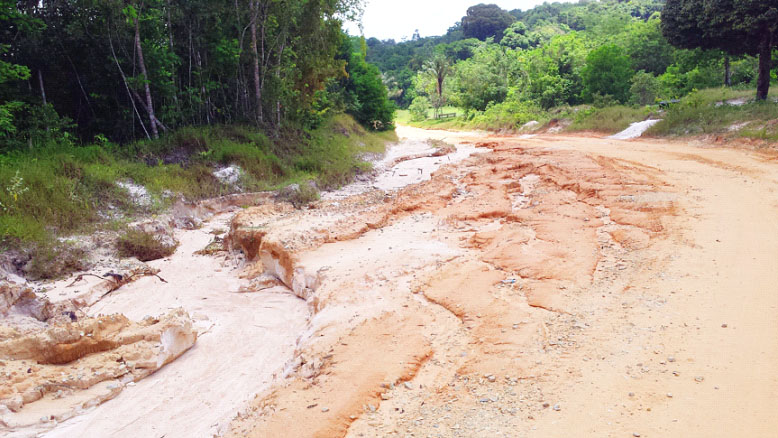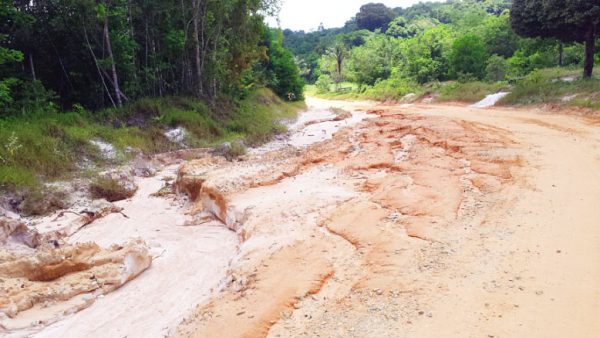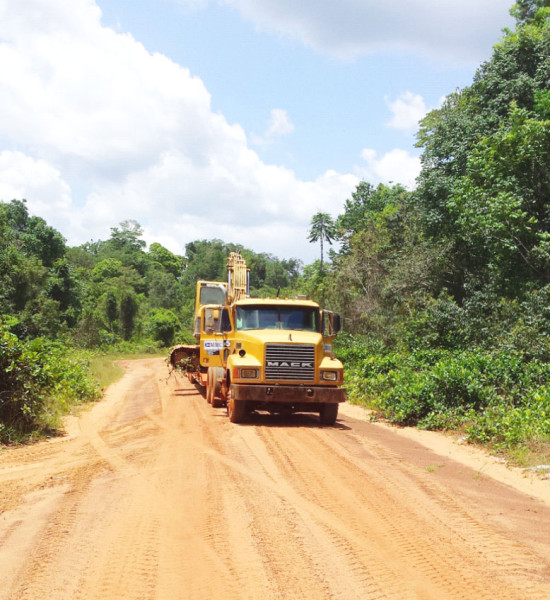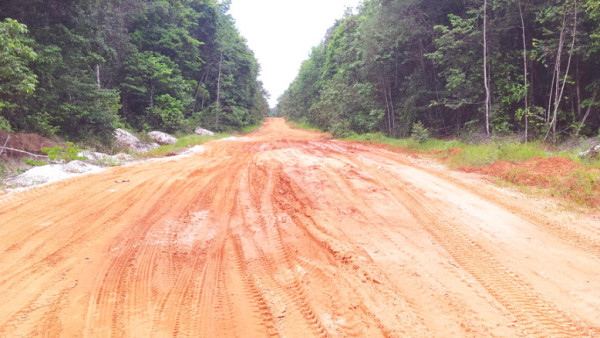The deplorable state of the Bartica-Potaro Road has persons who traverse it asking why there has been no visit by government officials since the May General and Regional Elections as well as no signal as to if or when major maintenance is likely to happen.
Traversing the Region Seven (Cuyuni-Mazaruni) road now is difficult without a four-wheel drive vehicle and nearly impossible when the rains set in. Stabroek News was told that there has been no site visit by the new Public Infrastructure Ministry and prior to the elections the last one was not since last year prior to the rains.
It is not only the condition of the key mining artery that has residents from Bartica and onward frustrated but the cost of making trips out of the bush. Stabroek News was made to understand that minibuses are used weekly to bring people to and from town on the weekends, but hiring a cruiser can cost up to $30,000 for a return trip from Wineperu, also in Region Seven, depending on the driver, the vehicle and the amount of persons travelling.
On a recent trip along the road, very little traffic was seen at which point Stabroek News was told that due to the costs and the condition of the thoroughfare travel was contained to weekends.
Upon arrival at Bartica, Stabroek News was quickly warned not to attempt to travel the road by car as some sections were terrible.
Inclement weather takes a toll on the laterite road along with the heavy machinery that is used to service businesses in the interior locations.
Residents in communities from Bartica to Wineperu are frustrated that the road has been neglected.
Speaking to Stabroek News, residents complained that the road is allowed to disintegrate and after the rainy season it is left to deteriorate even more. They noted that it was not suitable to just resurface the road once a year, stating that the rains combined with the heavy-duty trucks that are used for the various logging concessions and other ventures mean that regular maintenance is necessary.
For persons without access to vehicles or without the means to hire a 4X4, the time to traverse the Bartica-Potaro Road could take hours. Stabroek News was also told that in cases of emergencies the road had to be in decent condition for persons to be brought out from interior locations otherwise it was not feasible.
Residents noted that with little to no cellular service as well as sparse landline connections life in the interior continues to be difficult even to facilitate basic needs and the condition of the road compounds this problem.
The Central Housing and Planning Authority reported that in November of last year the Public Works in- house Force Action Unit spent over $77M to fix potholes as well as overlay asphalt in sections of the road. When Stabroek News visited the road on Thursday extending from Bartica to Wineperu, this newspaper was told that the crumbling asphalt was from days long gone.
Travelling along the road, the only signs of asphalt was between Bartica heading to One Mile, however this was crumbling with deep potholes.
Stabroek News was told that resurfacing of the road has been done and in parts, but without constant rehabilitation that would allow for the entire road to be looked after, the costs and the time taken to travel the road was still too high and too long.
This newspaper was told that from Bartica onward the road would need to be rehabilitated, it made little sense to resurface sections when the main port of entry into the various interior locations was at Bartica.
The Potaro Road extends past Mahdia in Region 8, but there too residents often fear for their lives as they use the road. Persons using the roadway from Mahdia have to also factor in the $14,000 toll at Mango Landing, which is operated by MMC.
A miner who lives at Tumatumari told Stabroek News during a site visit to the roadway in May that pensioners are required to travel to Mahdia at a cost of $8,000 to collect their pension of $12,000.
Stabroek News was also told by residents earlier this year in Mahdia that logging and mining ventures could be made to pay an additional tax that would hopefully be used to cover regular rehabilitation efforts that would benefit the “regular man.”











